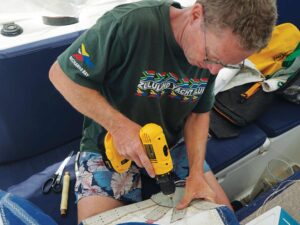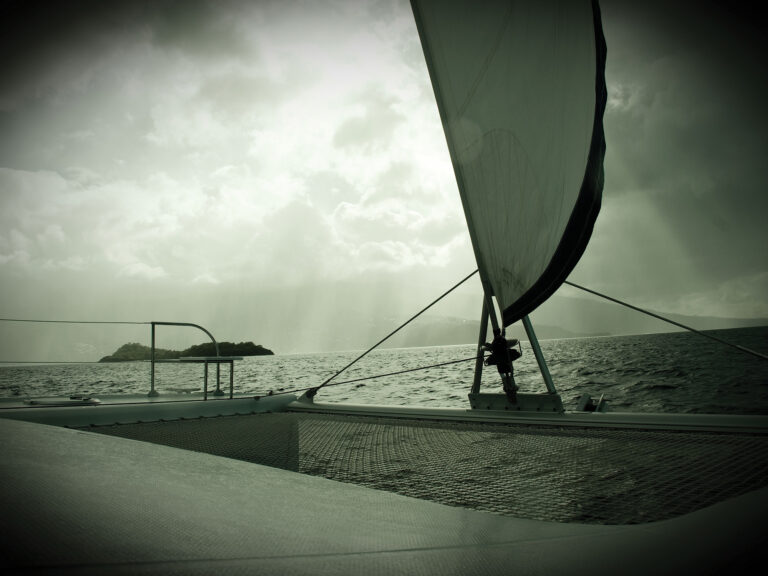
Sunset at sea
Over our decades of voyaging, we’ve had dozens of incidents and close calls that might’ve been tragic had we not been keeping a regular night watch. It’s not always easy for couples and shorthanded crews to remain vigilant, which makes it especially important to plan ahead. Knowing your partner is on watch and alert allows the other crew to sleep soundly. Well-rested sailors make better decisions and enjoy sailing more. Here are some tips:
Go up on deck—and we mean on deck, out from under the dodger—and check the horizon every 10 minutes. On Taleisin, we have a “watch watch” with a countdown alarm that flashes and sounds every 10 minutes. We derived this number by timing ships coming directly toward us from the moment we first spotted them until they were abeam, an average of more than 10 minutes.
While it’s tempting to enjoy music or recorded books, don’t use any device with earplugs that prevent you from hearing what’s happening inside or outside the boat.
Allow time for the person coming on watch to fully wake up. Provide a status report on weather, wind, shipping, and anything unusual. Larry once got a real fright when I didn’t inform him we’d just passed a huge oil-drilling barge that was under tow 800 miles off the Brazilian coast. He went on deck, still slightly groggy, and couldn’t immediately process the overwhelming wall of lights just off our stern.
It’s the watchkeeper’s job to** check for and silence any sounds** that could disturb the off watch. Search out clinking bottles or shifting pots and pans. I carry a full bag of sponges that I can use as silencers.








